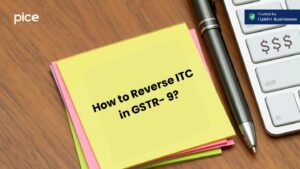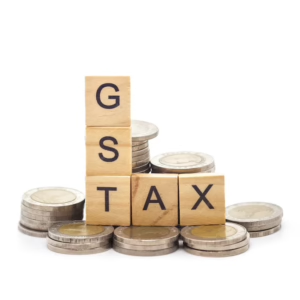GST Charge on Train Ticket Cancellation: Ministry of Railways Issues Clarification Details
- 2 Sep 24
- 7 mins
GST Charge on Train Ticket Cancellation: Ministry of Railways Issues Clarification Details
Key Takeaways
- GST on Cancellations: Knowing GST on railway ticket cancellations helps with financial planning and compliance.
- Global Variation: VAT/GST on cancellation charges differs by country, with some exempting these fees.
- Past Tax Rules: Under earlier tax regimes, cancellation fees were often not taxed if seen as compensation.
- Cancellation Fees: Confirmed ticket cancellations incur charges based on class, while RAC/Waiting tickets have specific refund rules.
- Refund Policy: No refund for confirmed tickets canceled less than 4 hours before departure; RAC/Waiting tickets allow refunds minus clerkage if canceled 30 minutes before.
The Ministry of Railways clarified the applicability of GST on the cancellation of railway tickets. This update aims to provide clear guidance on the percentage of GST applicable to cancellation, ensuring compliance and transparency.
In this blog, we will discuss the train ticket cancellation charges under GST and other associated details.
Whether you are a frequent passenger or an occasional traveller, understanding these intricacies would help you plan your finances and trips more efficiently.
Retention of Deposit Money on Cancellation of Booking Whether Chargeable to GST/VAT Internationally

The procedure of levying GST on cancellation of ticket charges varies for different countries. Few judiciaries consider cancellation charges subject to GST, while others do not.
Hence, determining if the taxability worldwide is the same, is difficult. Let us go through a few cases where VAT/GST was not levied on cancellation activity:
- A co-operative in the Netherlands ran a cold store for its members' benefit. There was an annual storage charge for members. For two years, 1975 and 1976, members were not required to pay any charges.
The authorities of the Netherlands issued a VAT assessment on the grounds of members enjoying the benefit of not paying their charges. The European Court of Justice (ECJ) said that there must be a direct link with the supply of services for collection of VAT and it was necessary for services to be in monetary terms.
- The Apple & Pear Development Council was established by statutory instrument in the year 1966 for the registration of commercial growers. Depending upon the area of the land, they had to pay a mandatory annual charge. Since the customs initially considered it to be a business purpose, there was an allowance for reclaiming input tax.
However, in 1981, the Customs issued a rule which said that its activities were not for business purposes. As a result, they should not be allowed to reclaim Input Tax. The House of Lords (HL), on appeals from the Council, referred the case to the ECJ.
The Court declared that there has to be a direct link between the provided service and received consideration for a supply of services to be for consideration, under Article 2(1) of the EC Sixth Directive.
There was no direct link between the benefits the growers enjoyed from the Council and the annual mandatory charges imposed upon them.
Cancellation Charges in Erstwhile Indirect Tax Regime
The erstwhile Indirect Tax Regime considers the activity of agreeing to a cancellation option or refraining from an act as deemed service. Under Section 66E of the Finance Act 1994, certain activities would fall under the provision of services. Let us see what they are:
- Agreeing to the obligation to perform an act
- Agreeing to the obligation to refrain from an act
- Agreeing to the obligation to tolerate an act or a situation
There are certain conditions in the contract for the service recipient. The activity came under taxable services only when the flow of consideration from one person to another was for refraining from an act, tolerating an act or doing an act.
Let us go through a few case laws on this issue:
- CESTAT, Bangalore held that Notice pay recovery is not subject to levy of Service Tax. Notice pay recovery is compensation for non-performance of an employee’s contractual obligation.
- CESTAT, Delhi held that under Section 66E(e) of the Finance Act, 1994, liquidated damages recovered on account of breach of contract were not liable to Service Tax.
- CESTAT, Delhi held that service tax was not applicable against the amount on forfeiture of earnest money deposit. Retention of money of compensation for non-delivery of goods is also not liable to Service Tax.
- When a hotel offers bookings to customers, it receives a sum as a deposit money by the customers. If the customer eventually avails cancellation of booking, then the hotel retains the amount of money. CESTAT, Delhi held that the sum retained by the assessee is not liable to Service Tax charges under Section 66E of the Finance Act, 1994.
Confirmed & RAC Ticket Cancellation Charges/Clerk Charges
The cancellation or clerk charges depend on the status of the railway ticket - confirmed or waiting. Let us discuss this in detail.
Confirmed Ticket Cancellation Charges: In case someone cancels a confirmed ticket 48 hours before the departure time of the train, the person needs to pay a cancellation charge. The cancellation fees are as follows:

- ₹240 for First AC (1A)/ Executive Class (EC)
- ₹200 for Second AC (2A)/ 1st Class (FC)
- ₹180 for Third AC (3A)/ AC Economy (3E)/ AC Chair car (CC)
- ₹120 for Sleeper Class (SL)
- ₹60 for Second Sitting (2S)
The time of booking and time of cancellation are also important.
If the person cancels the booking within 48 hours to 12 hours before departure time, there would be a 25% retention of the total fare.
If the person cancels the booking between 12 to 4 hours before the departure time of the train, there would be a retention of half of the fare.
If someone cancels the booking less than 4 hours before the train’s departure time, no refund on cancellation.
RAC/Waiting Ticket Cancellation Charges: If a person cancels a ticket where all passengers are on the waiting list or are having RAC, 30 minutes before the train's departure time, the person gets a refund of the entire amount after deduction of clerk charges.
The clerkage charge applicable is ₹60 for each passenger. The same refund rule applies to train ticket cancellations where some passengers fall under the RAC category and the rest fall under the waiting list category.
This rule has been effective since 12th November 2015. The rule remains effective irrespective of all classes of travel. If the application for cancellation is less than 30 minutes before the departure time of the train, there is no option for a refund.
In cases of online bookings where all passengers are on the waiting list, the amount automatically gets refunded to the accounts.
Conclusion
A proper understanding of train ticket cancellation charges under GST ensures a seamless travel plan and minimal impact on your travel budget. Keep track of cancellation policies for accurate financial planning. Proper management of cancellations also helps maintain tax regulations.
💡If you want to pay your GST with Credit Card, then download Pice Business Payment App. Pice is the one stop app for paying all your business expenses.
 By
By 
















